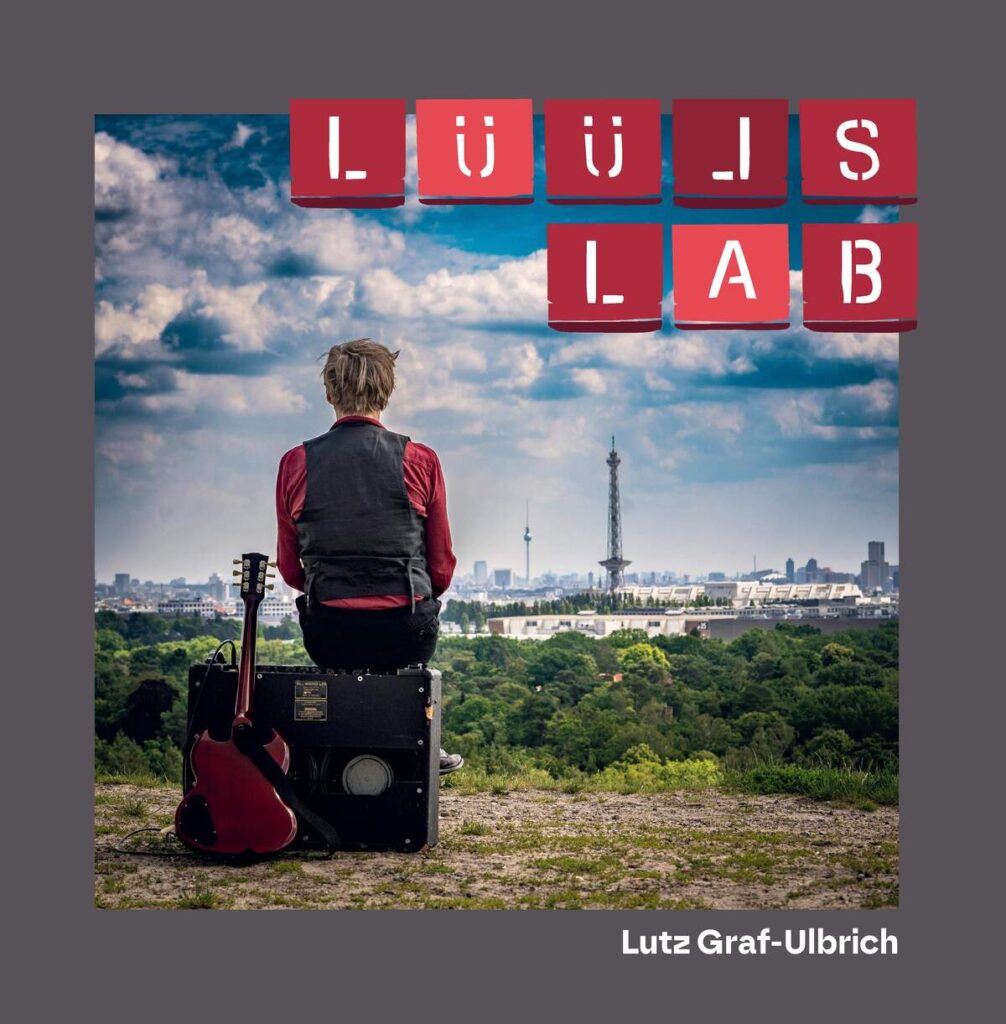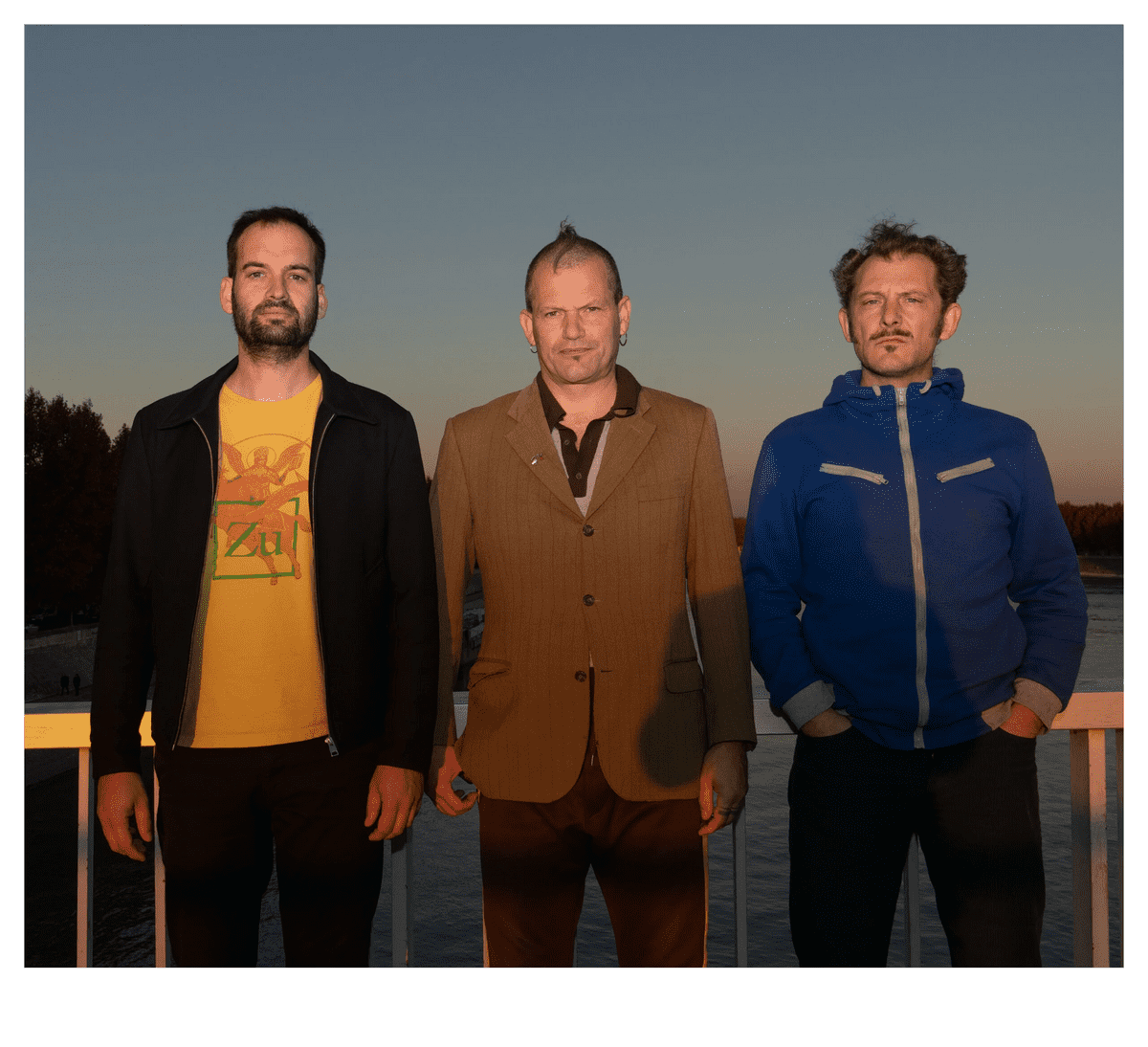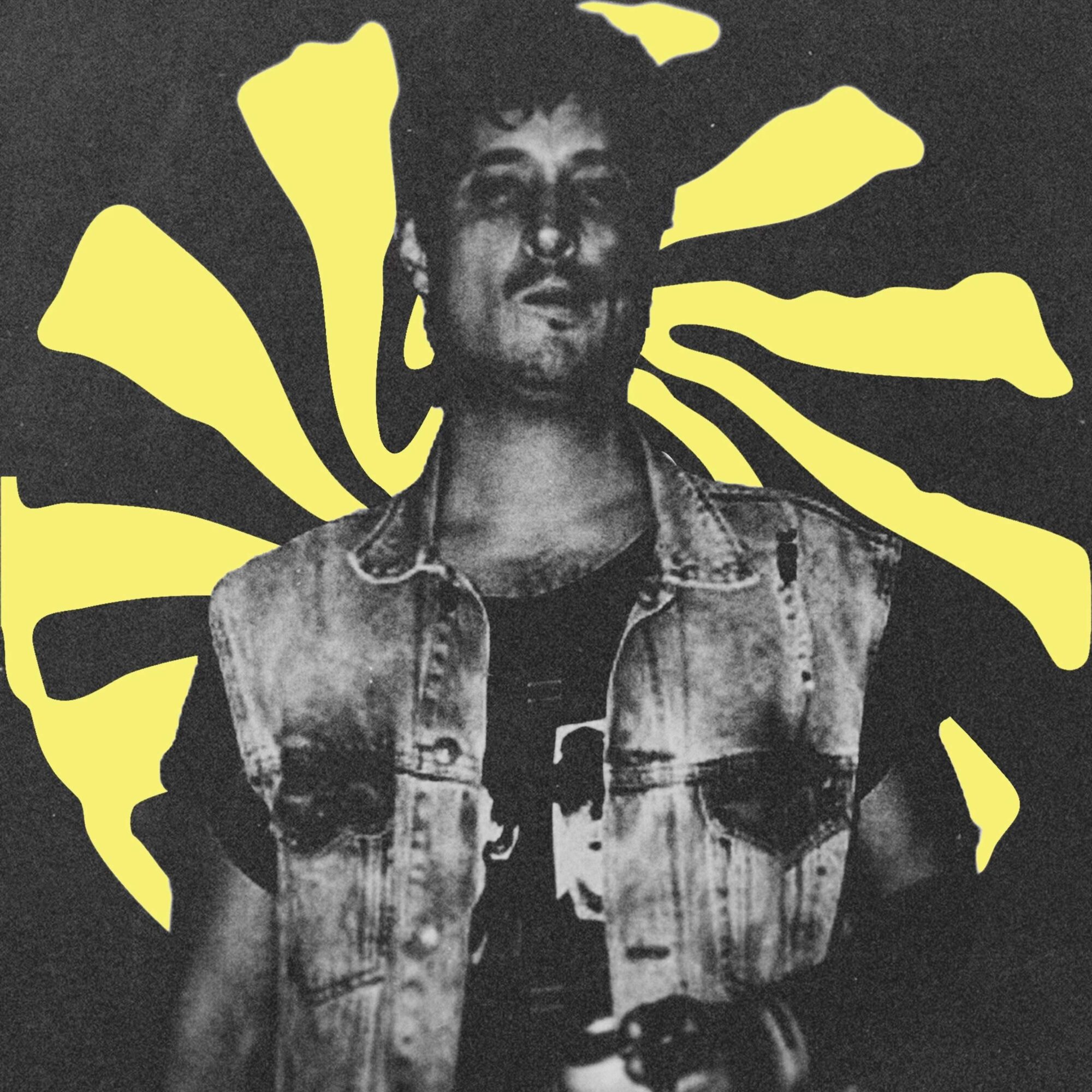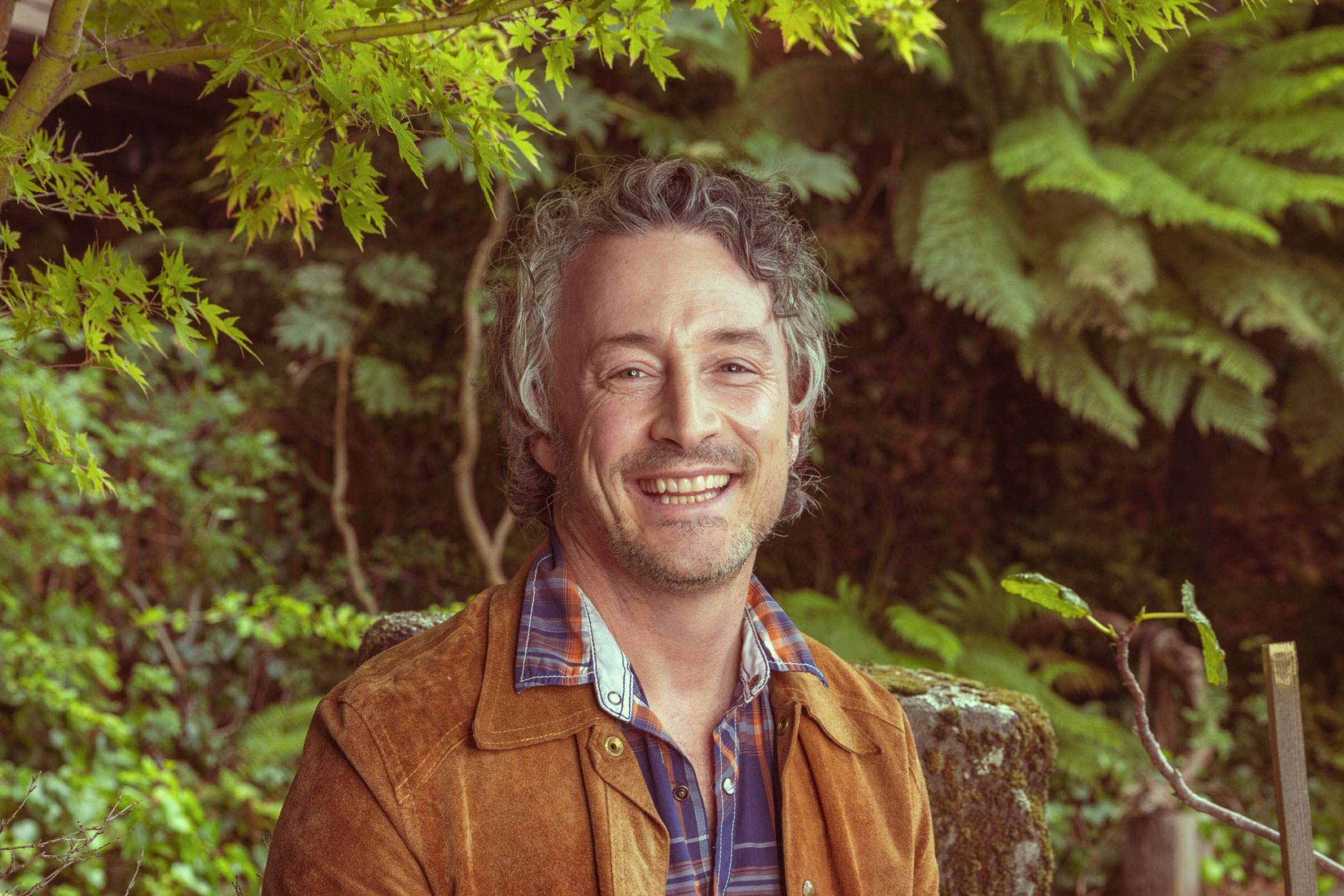Lutz Graf-Ulbrich (Lüül) on ‘Lüüls Lab’: An Interview About Sound, Solitude, and Surprise
The legendary Lutz Graf-Ulbrich has always been a very adventurous and creative musician, from his very start with the pioneering Agitation Free to the collaborations he did with the likes of Nico and Manuel Göttsching.
His latest solo album, named after his moniker, ‘Lüüls Lab,’ might be his most personal and unvarnished work yet: an instrumental solo venture that stands distinctly apart from previous work.
Crafted in the quiet solitude of his Berlin studio, ‘Lüüls Lab’ is a very reflective dive into sound and self. “The aim was to surprise myself,” Lüül explains, and the album is indeed full of unexpected turns. Stripped of the collaborative dynamics found in his work with Ashra or Agitation Free, the guitar takes center stage. It’s at once fragile and fierce, weaving through sparse electronic textures that enhance the overall experience.
The genesis of this album can be traced to an affecting tribute performance of ‘Oasis’ at Göttsching’s memorial. That emotional weight of memory permeates the album, yet ‘Lüüls Lab’ never lingers in the past. What it does, at least to me, is it moves with a calm forward momentum. Words like instinct, courage, and a lifetime of absorbed sound are some with what I personally would describe this uncompromisingly honest LP.
‘Lüüls Lab’ is the latest chapter from an artist who has made a habit of surprising himself and his listeners at every turn.

“I never felt alone, but I felt welcome in my own music.”
You mentioned that the goal with ‘Lüüls Lab’ was to surprise yourself. Looking back, what was the biggest surprise that came out of making this album?
Lutz Graf-Ulbrich: Good question. I have to think about it… the answer might be a bit surprising, but the real surprise of it all is the collaboration with my wife who does the visuals for all the tracks. Now that I am performing ‘Lüüls Lab’ live, I get the reaction of the audience directly and a lot of compliments, not only for my music but for the visuals. So I am really happy that my wife and I are working together in this project.
The other thing that has surprised me was the creativity I felt during the production. Whenever I was sitting down to compose a new track, lots of musical ideas came to my mind without really having a plan. So the creative process was quite a pleasure, not knowing where to start or where to go with my music, but somehow getting somewhere. I like that, and I only trusted my own way of doing it without looking at whether it fits into this world today or not.
You’ve always played in bands where ideas bounce off other people. What was it like being totally on your own for this project? Did it feel like freedom or more like stepping into the unknown?
Good question again, thanks. As I have already mentioned above, it all came very easily. The composing process is something I enjoyed very much, as I could go with my own timing and not have to be ready at a specific point. So I was quite relaxed doing it, and if I did not feel like recording, I just did not.
And as I did not exactly know in which direction it all would go, there was a limitless freedom indeed. Everything seemed possible as far as my musical skills would allow. I never felt alone, but I felt welcome in my own music. And I always appreciated artists who do something unique in their own style. That is what I tried to do.
Reworking ‘Oasis’ after all these years must have been emotional, especially as a tribute to Manuel Göttsching. Did playing it again bring back memories from those Ashra days, or did it take on a totally new meaning for you?
Of course. I always loved playing that tune with Manuel Göttsching back in the day. The chords are quite unusual, very high up the fretboard of the guitar. And Manuel has been such an elegant guitar player. It is all smooth and relaxed, very nice, and I felt comforted by his composition. I am glad I could take that a bit into my own way of guitar playing.
But of course, whenever I play that composition, I feel close to Manuel. So yes, it is more like a good memory, also as I have tried to play it exactly like he did and not to invent something new.
You have said this album had to be pure and direct. In a time when a lot of music gets polished to death, how did you keep things honest without overthinking it?
Yes, exactly, that was my idea: to keep it rough, simple, and direct. So I did not do too many overdubs and did not try to become a super producer with this album. Just followed my instincts and left room for imagination from the listener.
So you might also hear some little mistakes here and there, but I find it charming as long as it does not kill the flow. I am not a big fan of overproduction, though I admire the work of good producers like Michael Hoenig, for instance. But that is not what I am.
Your musical life has included everything from Berlin’s underground to CBGB’s and cab rides with Nico. Do you feel like this record is connected to all that history, or were you trying to do something that stands completely apart from it?
Of course, but to be honest, I did not think about it. But I am aware that all these crazy adventures and anecdotes are part of who I am and what I play. The good thing about getting older is that you can relate to a lot of things in the past, and if you happen to have a full life so far with a lot of experiences, you learn a kind of relaxed attitude to not take things too seriously.
At least that is how I see it. On the other hand, I see a lot of people doing the same stuff over and over again and forgetting to be spontaneous. So with ‘Lüüls Lab’ I tried to leave my comfort zone and to take some risks, and it really paid off. If that whole thing had crashed, so what? Make another try.
The guitar is front and center, but there are these really interesting electronic textures floating around it. How did you go about blending those two worlds without losing the vibe you were after?
As a guitar player, it is obvious that my guitar playing would be the most important part, but I always love electronics and the combination of both, as we did with Ashra and also in my collaborations with Fanger and Schönwälder.
To look for sounds in my Pro Tools digital audio workstation was great fun. I explored all the possibilities there, but it takes a lot of time too. But sometimes you get so inspired by a new sound that making music becomes very easy.
I am thankful to Michael Hoenig who introduced all members of Agitation Free to that great work machine. Of course, there is a risk where you get lost or something technical does not work right and you get desperate, but as I was not in a hurry, I could deal with that.
A lot of the track titles—like ‘Monolog’ or ‘Sad and Hopeful’—feel personal, even though there are no lyrics. Are these songs telling a story from your own life, or are they more about creating moods and atmospheres?
I consider the whole album as very personal indeed, even though it does not have lyrics. But the way I created and produced it was very individual. Finding the right titles for each track is the hardest.
That is a real problem if you do not have lyrics to relate to. But of course, you have to name a composition from the start in order to save it on the device, so you have a title right away. But it never holds until the track is published. You listen to the composition over and over, and at some point, you get an idea what title to choose.
For instance, ‘Der Wilde Ritt’ originally was created as a very rough piece of music, just power and drive and nothing else. The original title was ‘Tribe’ as I found it very archaic. Later, I changed it into the real name.
With Fanger and Schönwälder I was not involved with finding titles. I just played guitar to their sequencers. So when the last album came out, one track was called ‘Eichkamp’—that is the small part of Berlin Charlottenburg where I grew up. So I was happy to finally use all the old Super 8 film footage my father had made back in the day there (with the first Agitation Free footage ever), and it gives a very nice atmosphere to the track, even though the music was created decades later.
You have been part of so many different sounds and scenes over the years. What keeps pushing you to explore new musical directions, and where do you feel your curiosity is pulling you next?
Yes, it has always been that way for sure. Never gets boring. Most of the shows I play are as a singer songwriter with German lyrics. Apart from that, we play concerts with Agitation Free again and hopefully that will become more and more.
And then I recently founded a new band called ‘Der Wilde Ballon’ with about ten musicians. This is a very interesting project I really love, and it is great that I can bring in my experiences, especially with 17 Hippies where I have played over 25 years and toured in over 35 countries.
I like to work with people. I like to get along well together in a creative atmosphere and to learn from others. But this is not so easy with so many different characters. Still, we do our best and try to be as open to ideas as possible, with a lot of respect for each other.
It is very exciting to see how songs develop and new ideas come up and lead to a different arrangement. But I also like to travel all by myself and make music alone. So it is all about the right mix for me.
Dear Klemen, these were very good questions. Thanks for that and keep on!
Klemen Breznikar
Lutz Graf-Ulbrich Website / Instagram / YouTube




